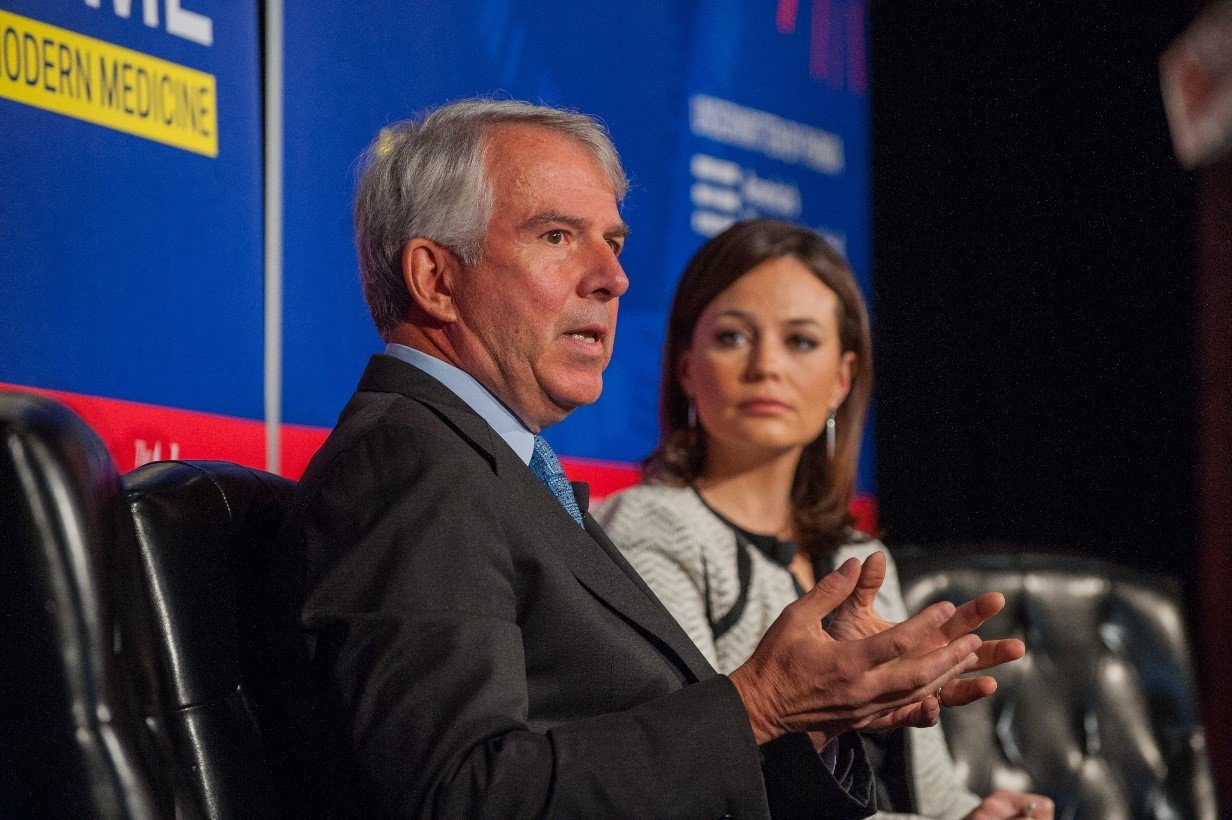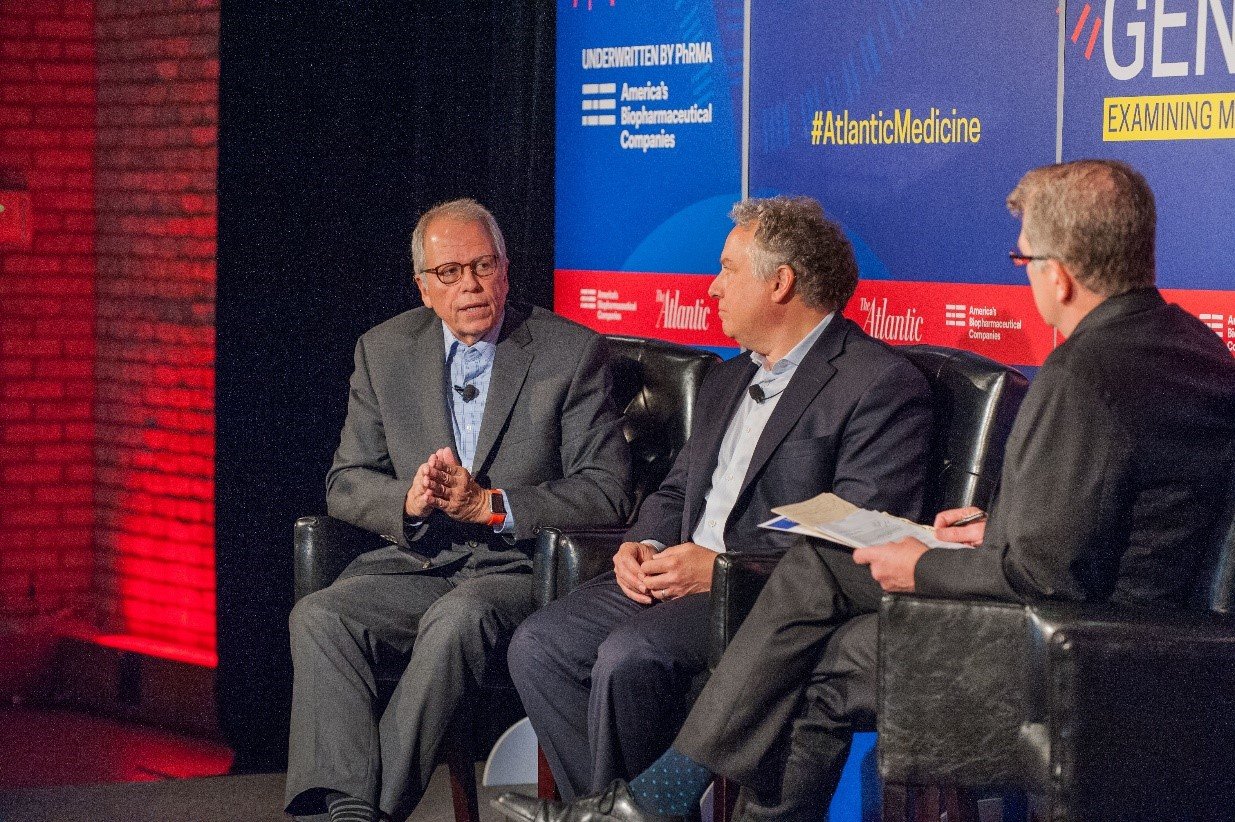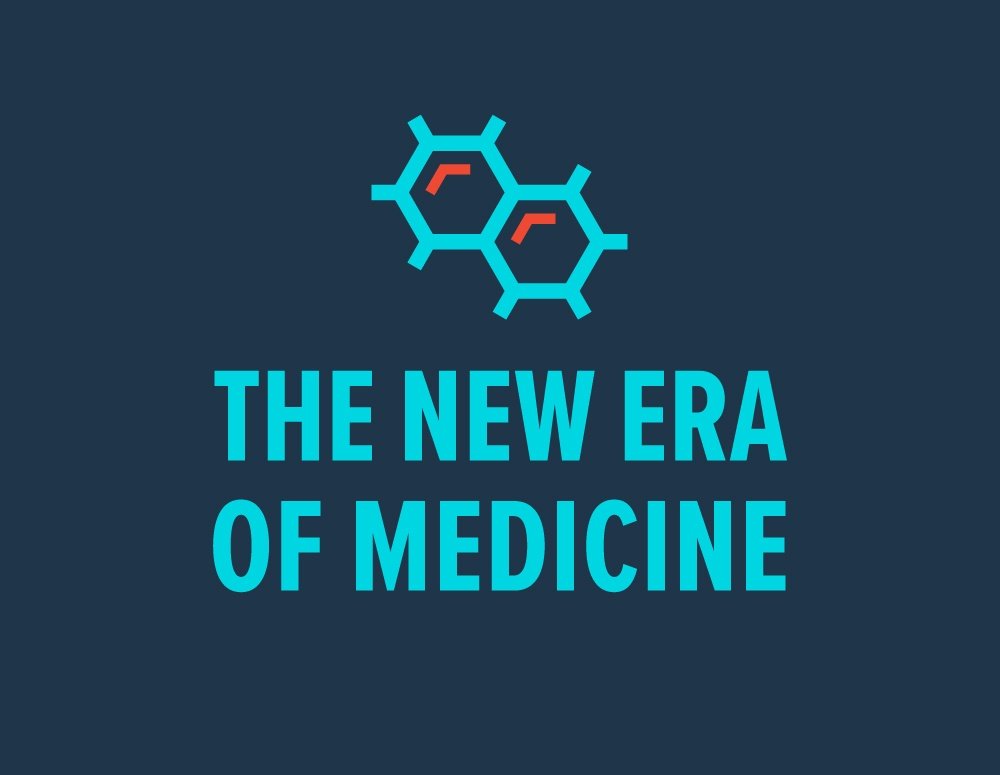As the understanding of each person’s unique DNA makeup continues to grow (better known as genomics), personalized medicine is rapidly reaching new heights.
PhRMA continued its national dialogue series in New York City on Wednesday with an event led by The Atlantic to delve into this new, dynamic world of medical discovery. As the latest discussion focused on the New Era of Medicine, the event titled “Sequencing the Genome: Examining Modern Medicine” explored the promise of genomics. The discussion went in-depth on the state of innovation and research today and what challenges and opportunities the future holds.
Notable speakers included Robert J. Hugin, Executive Chairman of Celgene, who spoke with CNBC’s Meg Tirrell in a one-on-one session about the “Business of Human Genomics.”
“I think we've seen tremendous impact on patients already. There are more than 100 approved drugs by the FDA that have genomic information in the labeling that provides either specific patient populations or how to use the drug in a way. So patients today, because of the science [and] advances made over the last decade, are significantly safer, being treated better, not being treated with drugs they shouldn’t be treated with. [The drugs are] being used more effectively from dosing regimens, etc. And therefore the quality of life is even better, if not even in fact an extension of life has been achieved.” - Robert J. Hugin, Executive Chairman, Celgene

Ripley Ballou, Vice President of GSK Vaccines and Head of Slaoui Center for Vaccines Research, joined the “Future Vaccine” panel looking at the impact of genomics on how we develop vaccines.
“One of the things that has been very clear from our experience with Ebola and Zika is that we need to be able to respond very quickly. What keeps me up at night in terms of future threats is the one that we don’t know about. And it’s out there somewhere as evolution moves these viruses -- they’re usually viruses -- along. That means we need genomics technologies to sequence a virus very quickly. Genomics technologies have allowed us to design rapid response platform technologies: those could be our best bet for the rapid production and scale up of a new vaccine.” - Ripley Ballou, Vice President of Vaccines, GSK

Click here to watch the full video and learn more at innovation.org





